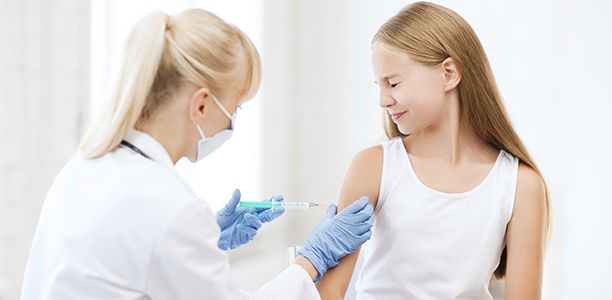It’s a virus that is responsible for almost all cases of cervical cancer but a new study by University of Texas Medical Branch at Galveston researchers indicates that only about half of the girls receive the vaccine at the recommended age to best protect themselves.
Human papillomavirus, also known as HPV, is responsible for 99.7% of cervical cancers and several other cancers. The HPV vaccine protects against 70% of cervical cancers and 90% of genital warts cases. The Centers for Disease Control and Prevention has recommended that girls get the vaccine when they are 11 to 12, because it is most effective when it is given before girls become sexually active. The question is — how many girls actually receive the vaccine at the recommended age?
The UTMB study indicated that, among those who were vaccinated, only 14% of girls began the three-dose vaccine series at the CDC’s recommended age of 11 to 12 in 2008. By 2012, this proportion rose to 56%. However, this means that almost half of the surveyed teenage girls still received the vaccine older than 12. Researchers are not certain how effective the vaccine is when it is given after this age. These trends did not differ by race/ethnicity.
The research team, led by UTMB’s Mahbubur Rahman, associate professor in the department of obstetrics and gynaecology, analysed data from the annual National Immunization Survey of Teens conducted by the CDC. The CDC data tracked information from 2008 to 2012 on girls’ ages when the vaccine series was started and completed. The UTMB study recently was published in the journal Vaccine.
“Rates of HPV infection increase significantly every year for young people between 14 and 24, so vaccination at a young age is very important,” said Rahman. “It’s important that parents and health care providers are aware of the importance of early HPV vaccination to ensure that girls receive this vaccination at the CDC’s recommended age.”
Other members of the research team include UTMB’s Christine McGrath, Jacqueline Hirth and Abbey Berenson.
(Source: University of Texas Medical Branch, Vaccine)










